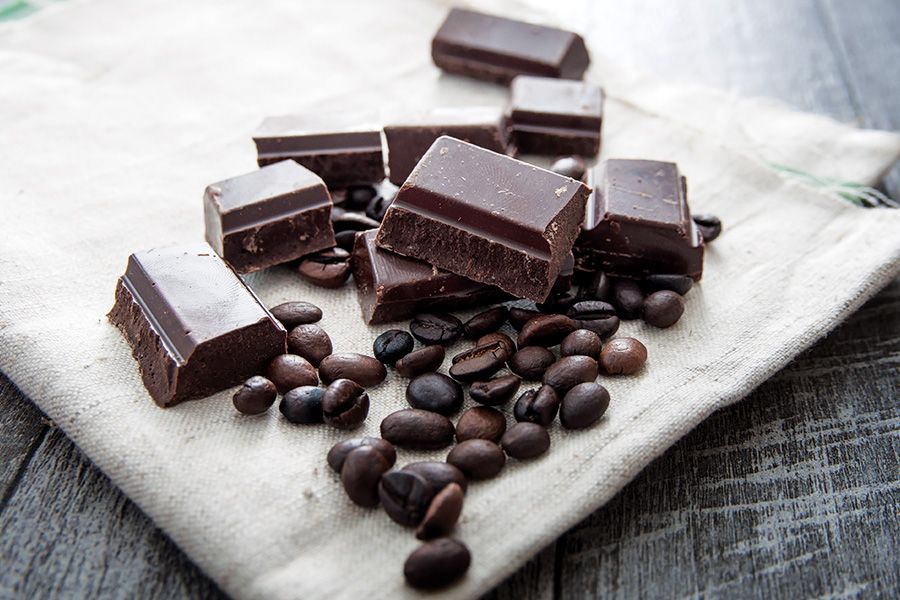Eye-opening Facts About Caffeine
A caffeine fix in the morning is normal for many of us. Approximately 62% of Americans and 98 million Britons, respectively, consume coffee every day. Caffeine is a naturally occurring stimulant of the central nervous system found in coffee beans. According to US health officials, individuals should not take more than 400 mg of caffeine daily (about four to five cups of coffee) since this might lead to anxiety, sleeplessness, and elevated heart rate.
Decaffeinated Coffee
It may surprise you to learn that decaf does contain some caffeine. An typical cup of decaf has about 2 mg of caffeine after the process of decaffeination eliminates about 97% of the caffeine. Dr. Simoné Laubscher, the creator of Rejuv Wellness and the formulator of WelleCo's nutritional supplements, claims that moderate dosages may even be advantageous. "Decaffeinated coffee has similar health benefits to that of coffee, as it is rich in micronutrients like magnesium and antioxidants," the speaker says.
Chocolate

The amount of caffeine in your chocolate is determined by the quantity of cocoa solids. As a general rule of thumb, 3.5 oz (100 g) of milk chocolate has around 21 mg, but the same quantity of dark chocolate (70–85% solids) contains 80 mg. White chocolate has no caffeine since it just includes cocoa butter and no other solids. meals with natural caffeine content frequently have health advantages that meals with artificial caffeine addition don't. Dark chocolate, for instance, is high in antioxidants, fiber, iron, copper, and manganese, according to Dr. Laubscher.
Green Tea
Strong antioxidant EGCG is found in green tea, and nutritionists think this antioxidant may improve brain health and stave off illness. While not as much as coffee or a typical cup of boiled black tea, it does contain caffeine. Similar to the latter, the amount varies depending on the specific leaves and the length of time the tea is steeped; it usually ranges from 35 to 80 mg per cup.
Ice Cream
Depending on the flavor, many ice creams—which are effectively frozen custard—have no caffeine at all. Unless all of the flavorings are fake, chocolate or coffee variants almost probably include some caffeine. 3.5 ounces (100 grams) of chocolate ice cream, according to the US Department of Agriculture (USDA), contain around 3 milligrams of caffeine. According to 2015 data, each 8 oz (236g) of Ben & Jerry's Coffee Toffee Bar Crunch ice cream had 70 mg of caffeine.
Energy Drinks

A large Americano (473 ml/16 fl oz) has about 225 mg of caffeine, whereas an energy drink of the same size can have up to 357 mg, which is getting dangerously near to the 400 mg daily safe limit. Also, a lot of energy drinks come in bottles that are double this size. "Having multiple energy drinks daily could quickly put you over the caffeine limit, increasing health risks like higher blood pressure and heart rate," according to Dr. Laubscher.
Cookies
A package of plain biscuits or an oatmeal and raisin cookie is unlikely to contain any caffeine, but chocolate-covered goodies are a different story. A single milk chocolate chip cookie (about 1 oz/28 g) has about 3-5 mg of caffeine; this is a little amount to consider if you eat them right before bed or are tempted to consume the entire packet. Caffeine level will also be increased in biscuits covered in or containing dark chocolate; naturally, those containing coffee will contain much more.
Read Also: Benefits of Consuming Low-Sugar Vegetables and Fruits
Beer
Although coffee isn't inherently present in beer, the popularity of rich, velvety stouts and porters made with cold-pressed coffee beans means that a pint or schooner may have a little more caffeine than you may have anticipated. Big and small breweries alike are experimenting with the deep, smokey flavors that coffee brings. It's difficult to determine the exact amount of caffeine in an ordinary coffee-flavored beer because to its recent popularity and wide brew variations, but Caffeine Informer, a website, estimates that a 350ml (11.8fl oz) pour will likely contain less than 50mg.
Yerba Mate
:max_bytes(150000):strip_icc()/yerba-mate-tea-ft-blog0117-4cb79b7e35604b0a828dcd88b7a92855.jpg)
A popular beverage in the region for a long time, yerba maté is produced from the dried leaves of a holly plant found in the South American rainforest and is often consumed with a straw from a unique gourd or calabash. It's becoming more and more well-liked outside of South America as well, in part because of its purported health advantages. Yerba maté does, however, contain a surprisingly high level of caffeine compared to typical coffee; a 150ml (5fl oz) cup has about 78mg of caffeine.
Coca-Cola
Coca-Cola, which derives its name and caffeine kick from the kola nut, is one of the most well-known drinks in the world because to its harmonious blend of sweet and bitter flavors. Although there are versions without caffeine, it does include some caffeine—though not as much as in a typical cup of tea or coffee. The amount of caffeine in a standard (330ml/11fl oz) can of Coca-Cola and Coca-Cola Zero Sugar is 32 mg, but interestingly, Diet Coke has somewhat more at 42 mg.